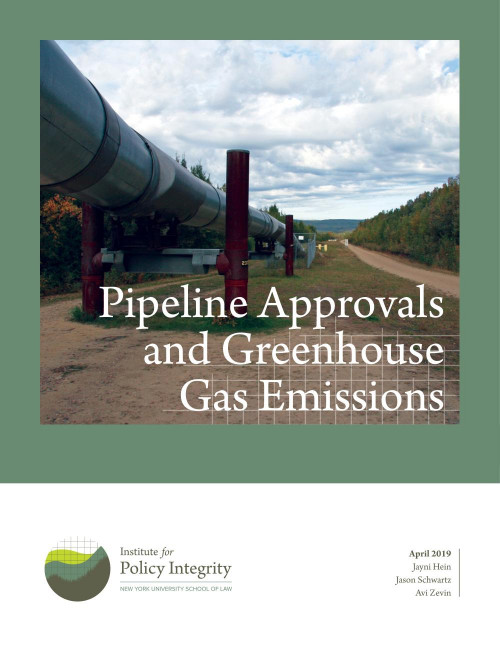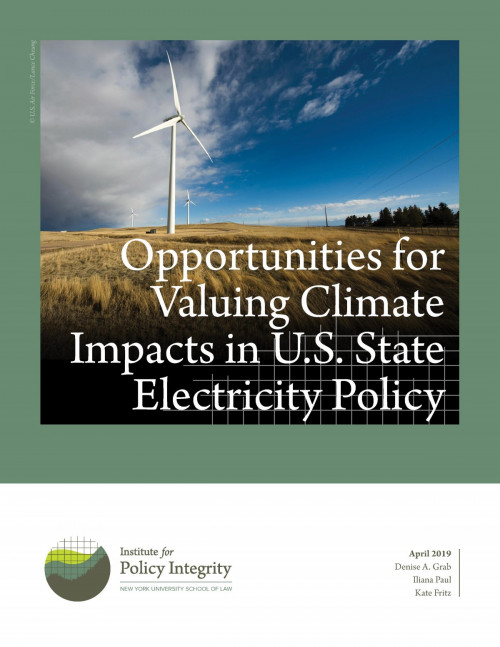-
Comments on California Public Utilities Commission’s New Analysis Framework
We recently encouraged the California Public Utilities Commission (CPUC) to clarify aspects of its new process for evaluating the social costs and benefits of energy resources. As we discussed in prior comments, the proposed analysis framework, the Societal Cost Test (SCT), will help the Commission to make investments that provide the greatest welfare benefits. Our new comments ask CPUC to provide some additional information in the SCT proposal.
-
Comments on the Replacement of the Clean Water Rule
The Environmental Protection Agency (EPA) and Army Corps of Engineers are proposing to replace the 2015 Clean Water Rule with a new rule that would harm many waterways by removing critical federal protections. We submitted comments detailing how the agencies provide flawed analysis in support of the proposal. Dr. Peter Howard and Dr. Jeffrey Shrader also submitted an expert report detailing the flaws in the agencies’ new valuation of wetland benefits.
-
Comments to DOE on Energy Conservation Standards for Direct Heating Equipment
The Department of Energy (DOE) recently issued a request for information on the energy conservation standards for direct heating equipment. We submitted comments that advise the Department to monetize climate benefits from greenhouse gas emissions reductions and discuss market-based approaches to energy conservation standards.
-
Amicus Brief in Atlantic Coast Pipeline Case
If constructed, the Atlantic Coast Pipeline Project would be responsible for greenhouse gas emissions resulting in over $1.3 billion per year of climate damages. The Federal Energy Regulatory Commission’s (FERC) analysis estimates the quantity of the project’s emissions but does not analyze the context, intensity, or significance of the incremental climate damages they will cause. We submitted an amicus brief to the U.S. Court of Appeals for the D.C. Circuit that explains how FERC’s failure to monetize the project’s climate damages using Social Cost of Carbon (SCC) estimates is arbitrary.
-
Court Overturns Repeal of Valuation Rule
The Institute for Policy Integrity helped contribute to a significant legal victory, as a federal district court in California today overturned the Trump administration’s repeal of the Interior Department’s Valuation Rule. The Valuation Rule sought to ensure that states and the federal government receive the full value of royalties due for oil, gas, and coal extracted from public lands. While the administration has lost numerous court cases related to deregulation, this is the first decision overturning a repeal of a rule. Policy Integrity submitted an amicus brief in the case and comments on the original rule and the repeal efforts.
In our amicus brief, we argued that the repeal was unreasonable because of the agency’s inaccurate assessment of the repeal’s economic impact. District Judge Saundra Brown Armstrong’s opinion echoed some of the arguments from our brief and cited an academic article on deregulation written by Bethany Davis Noll and Denise Grab.
-

Pipeline Approvals and Greenhouse Gas Emissions
In light of growing public awareness of the environmental effects of pipeline projects, the Federal Energy Regulatory Commission (FERC) has faced competing pressures regarding how to balance the need for new natural gas pipelines with their environmental consequences. Concerns about greenhouse gas (GHG) emissions and resulting climate change effects have become a flashpoint in the debate. Our report examines the legal context surrounding FERC’s evaluation of the environmental impacts of proposed interstate natural gas pipelines. We look at FERC’s obligations under the Natural Gas Act and the National Environmental Policy Act, as well as potential improvements the agency can make to its analyses to better inform policy makers and the public about the impacts of proposed projects.
-
Amicus Brief on the Good Neighbor Provision of the Clean Air Act
The Clean Air Act includes a Good Neighbor Provision, which requires states to prohibit their own sources of pollution from emitting in quantities that “contribute significantly” to another state’s inability to achieve national ambient air quality standards. When upwind states fail to abide by this requirement, the Act authorizes downwind states to petition the Environmental Protection Agency (EPA) for relief.
In 2018, EPA denied five such petitions filed by Maryland and Delaware, which sought tighter limits on ozone-forming emissions from power plants in Indiana, Kentucky, Ohio, Pennsylvania, and West Virginia. Maryland and Delaware, supported by other states and a coalition of environmental groups, have now challenged those denials in the U.S. Court of Appeals for the D.C. Circuit. In our amicus brief supporting the challenges, we focused on EPA’s erroneous claim that no further emission reductions at the specified plants would be cost-effective.
-

Opportunities for Valuing Climate Impacts in U.S. State Electricity Policy
With an absence of federal leadership on climate change, many states have worked to reduce greenhouse gas emissions on their own, often by incorporating a broader range of considerations into electricity policy. Our report assesses the potential to expand the valuation of climate damages in state electricity policy using Social Cost of Carbon metrics. We examine existing statutes and regulations in all 50 states to identify opportunities for valuing climate impacts around the country.
-
Colorado Senate Testimony on the Social Cost of Carbon
Colorado is considering a major overhaul of its electric resource planning rules and renewable energy standards. Jason Schwartz recently provided testimony in a Senate hearing on the reauthorization of the state’s Public Utilities Commission as part of this overhaul. Schwartz spoke about a possible requirement for the PUC to weigh the social costs of pollution in its decisions. Coloradoans, he explained, are paying the costs of climate pollution in the form of more dangerous wildfires, agricultural damages, declining snowpack, and a range of severe health effects. Many of these important costs can be quantified. In his testimony, Schwartz recommended that the PUC uses Social Cost of Greenhouse Gases metrics when evaluating energy resources in order to improve public welfare.
-
Comments to EPA on Revised Emissions Standards for New Power Plants
The Environmental Protection Agency (EPA) recently proposed a significant weakening of greenhouse gas emissions standards for new coal-fired power plants. We submitted comments focusing on flaws in the proposal and accompanying regulatory impact analysis.
Viewing recent projects in Climate and Energy Policy






